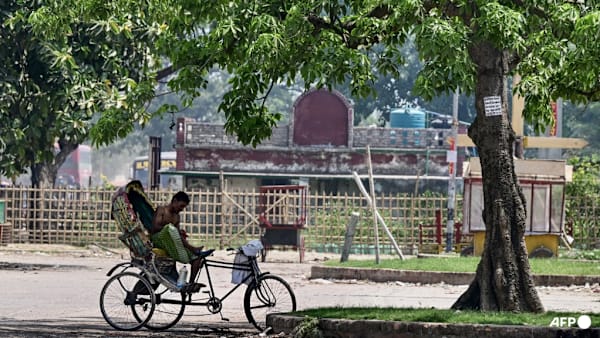
DHAKA: Bangladesh is facing mounting health risks and economic costs from surging temperatures, with extreme heat costing the country up to US$1.78 billion, or around 0.4 per cent of GDP, last year, according to the World Bank.
The bank estimated that in 2024 the country lost around 250 million workdays due to heat-related physical and mental health conditions – a reality rickshaw puller Md Islam Hossain knows firsthand.
“In Dhaka city, you will hardly find trees,” the 42-year-old told AFP on Wednesday. “I sweat all the time – my wet shirt dries, then I sweat again. I often suffer from skin diseases, coughs, and colds.”
Since 1980, the South Asian nation’s maximum temperature has climbed by 1.1°C, while the “feels like” temperature rose by 4.5°C, the report issued Tuesday read.
The sharp rise has fuelled more cases of diarrhoea, cough, fatigue, depression and anxiety, according to the study, which drew on 16,000 interviews.
“The rising temperature is affecting our health and productivity, and the country’s prosperity,” said Jean Pesme, World Bank director for Bangladesh.
Bangladesh’s capital Dhaka has emerged as one of the world’s most heat-stressed cities, with its heat index rising 65 per cent faster than the national average, the report said.
“Our analysis shows measurable links between exposure to heat and poorer health outcomes, alongside substantial productivity losses,” said Iffat Mahmud, report co-author.
“Like many other countries, Bangladesh faces real risks of lost human capital and productivity.”
The World Bank called for urgent and coordinated action, including better preparedness for heatwaves and more urban green spaces.
“The good news is that it can be done,” Pesme added.
Mohammad Abul Kashem, a senior officer at Dhaka North City Corporation, told AFP efforts were being made to mitigate heat stress with tree-planting.
But environmentalist Sharif Jamil of the Waterkeeper Alliance, a conservation group trying to protect water bodies and forests, said that efforts to plant new trees came as existing tree cover was being chopped down elsewhere.
“If only they start protecting greenery and wetlands from this moment, we can have some relief,” Jamil said.



